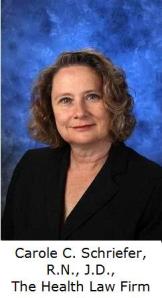Boca Raton Compounding Pharmacy Shuts Its Doors After Receiving an Emergency Suspension Order
On October 26, 2012, the Florida Department of Health (DOH) issued an emergency suspension order (ESO) against a Boca Raton compounding pharmacy, according to a number of sources. The DOH in a press release called the conditions in the pharmacy so “deplorable” that nothing short of immediately shutting down the pharmacy would suffice.
Click here to read the press release from the DOH.
Rodent Feces, Dead Bugs and a Sink Full of Dirty Water all Found at Compounding Pharmacy.
On October 12, 2012, a state inspector arrived at the Boca Raton compounding pharmacy for an inspection. According to an article on Health News Florida, rodent feces, dead bugs and a sink full of dirty water were discovered. A film of powder covered surfaces in the drug-compounding area, where containers of drugs were open. Information on patients and prescriptions was missing, and drug labels were missing important information on the dose, lot number and prescribing physician.
Apparently the compounding pharmacy had been cited in past inspections for similar issues.
To read the Health News Florida article, click here.
All Compounding Pharmacies Are Now Under Pressure.
The compounding pharmacy can have a DOH hearing before final action is taken. The suspension is in effect until final disciplinary action, until the suspension is lifted or the case is appealed.
This inspection and ESO occurred in the wake of a nationwide outbreak of fungal meningitis linked to contaminated drugs made by a compounding pharmacy in Massachusetts. I previously wrote a blog on the Massachusetts compounding pharmacy shutting down. To read more click here.
It’s believed because of the meningitis outbreak, all compounding pharmacies are under the microscope.
Another Florida Compounding Pharmacy in Trouble Due to Fungal Growth.
I previously blogged about the problems encountered by Franck’s pharmacy in Ocala, Florida. It has been accused of distributing eye medications that contained a fungal infection. Click here for the first blog and here for the second blog I wrote on this.
Contact Health Law Attorneys Experienced in Representing Pharmacies and Pharmacists.
The Health Law Firm represents pharmacists and pharmacies in investigations, regulatory matters, licensing issues, litigation, inspections and audits. The firm’s attorneys include those who are board certified by The Florida Bar in Health Law as well as licensed health professionals who are also attorneys.
To contact The Health Law Firm please call (407) 331-6620 or (850) 439-1001 and visit our website at www.TheHealthLawFirm.com.
Comments?
Do you think the Boca Raton compounding pharmacy was unfairly served with an ESO due to the meningitis outbreak? Or do you think it is better for the Florida DOH to be safe rather than sorry? Please leave any thoughtful comments below.
Sources:
Gentry, Carol. “State Finds Pharmacy Conditions ‘Deplorable,’ Suspends License.” Health News Florida. (October 26, 2012). From: http://wusfnews.wusf.usf.edu/post/state-finds-pharmacy-conditions-deplorable-suspends-license
Florida Department of Health. “Department of Health Takes Action Against Florida Pharmacy.” DOH. (October 26, 2012). Press Release From: http://newsroom.doh.state.fl.us/wp-content/uploads/newsroom/2011/08/102612RejuviESO.pdf
About the Author: George F. Indest III, J.D., M.P.A., LL.M., is Board Certified by The Florida Bar in Health Law. He is the President and Managing Partner of The Health Law Firm, which has a national practice. Its main office is in the Orlando, Florida, area. www.TheHealthLawFirm.com The Health Law Firm, 1101 Douglas Ave., Altamonte Springs, FL 32714, Phone: (407) 331-6620.
“The Health Law Firm” is a registered fictitious business name of George F. Indest III, P.A. – The Health Law Firm, a Florida professional service corporation, since 1999.
Copyright © 1996-2012 The Health Law Firm. All rights reserved.









